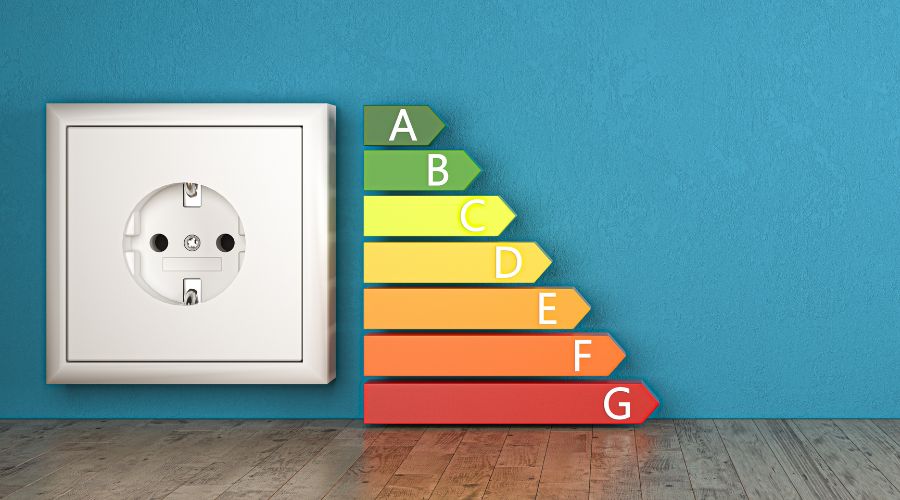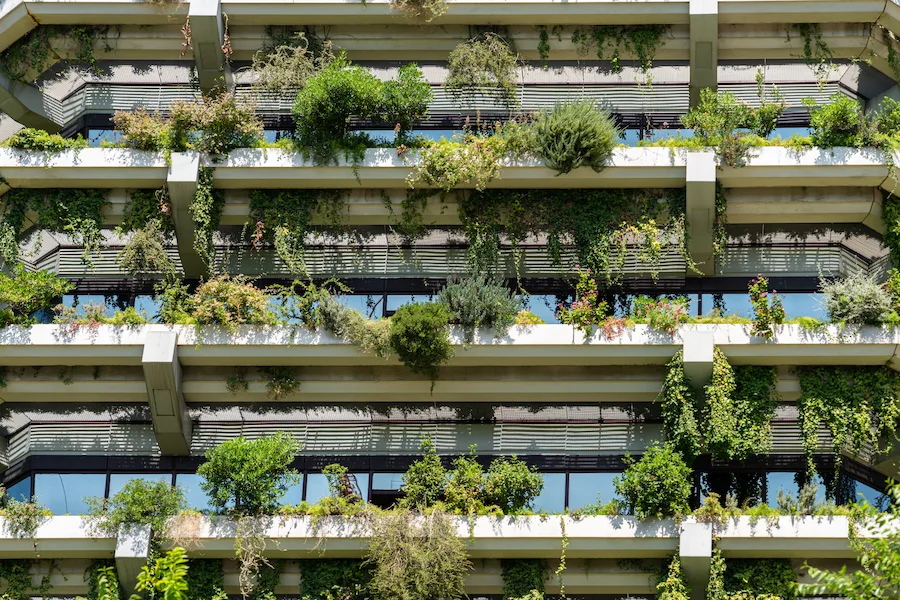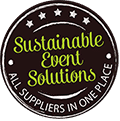Why should you, as an event planner, take a closer look at the Sustainable Development Goals, or SDGs for short? Because integrating the SDGs into events is an important step on the road to sustainability. Because through conscious event planning and the implementation of sustainable practices, your events can also make an important contribution to solving global problems and at the same time become a role model for sustainability. For this reason, we are presenting "SDG 11 - Sustainable Cities and Communities" to you today.

SDG 11 - sustainable cities and communities
SDG11 pursues the goal of designing cities and settlements to be inclusive, safe, resilient and sustainable. This is to improve the quality of life for all residents. SDG11 recognizes the importance of cities as centers of economic, social and cultural progress. At the same time, it emphasizes the need to promote sustainable development at the city level in order to achieve the global Sustainable Development Goals.
This is what SDG 11 means for events
SDG 11 means that sustainability is or should be a key factor in the planning, organization and execution of your events.
Large events such as congresses or trade fairs can place a heavy burden on the daily operations of cities, which are often already overcrowded. Therefore, events should involve communities in their plans, protect cultural and natural heritage as well as products, traditions and cultures.
Subgoal 11.6 aims to reduce the per capita environmental impact of cities by 2030. The main issues here are air quality and waste treatment.
For large-scale events, it is worthwhile for you as an event organizer to take a look at sub-goal 11.4, which states that "Efforts to protect and preserve the world cultural and natural heritage should be intensified."
To achieve SDG 11 at your events, you should:
- take sustainable practices to heart,
- Reduce environmental impact,
- Promoting integration,
- Create livable and sustainable venues and experiences.
All activities should be aligned with the Sustainable Urban Development Goals. By creating awareness, promoting education, presenting solutions, and building partnerships to promote sustainable urban development as an event planner, you can support SDG 11.

Events that lead by example
EcoFest
EcoFest" in Canada is an annual festival focusing on sustainable urban development and quality of life. It features workshops, conferences, exhibitions and activities on topics such as renewable energy, green mobility, sustainable architecture and green infrastructure. The festival encourages community participation and connects different stakeholders.
World Urban Forum
The World Urban Forum is a biennial conference organized by UN-Habitat. It focuses on sustainable urban development and the implementation of SDG 11. The WUF brings together government officials, urban planners, practitioners, experts and civil society representatives from around the world. The goal: to discuss best practices, challenges and innovations in the field of sustainable urban development.
Smart City Expo World Congress
This annual trade show and conference brings together professionals, companies, government representatives and experts from around the world to discuss smart city solutions and innovative approaches to sustainable urban development. The event focuses on topics such as digital transformation, smart mobility, energy efficiency, sustainable architecture and smart governance.
Fête de la Musique
... is a Germany-wide network. The aim is to unite cities as a community, to bring them into exchange and to provide advice and support to newcomers. The project "Greener Fête de la Musique" aims to reduce the ecological footprint of the "Fête de la Musique Berlin". The result is a guideline for "Sustainable Events in Public Spaces".
Green Destinations & Future of Tourism Summits
Here, "Green Destinations" cooperates with the "Future of Tourism Coalition", which complements the conference with the "Future of Tourism Summit". Sustainability experts, destinations and tourism associations take part in the event. They will exchange ideas on current topics to learn from each other and discover new initiatives, tools and solutions for sustainable destinations. In addition, the event offers panel discussions on various topics, joint workshops and the celebration of certified and awarded destinations.
These immediate actions at events pay into SDG 11
What can you do with your events to achieve SDG 11? Quite a lot:
Work together with local authorities.
In this way, you reconcile the needs of local people with yours as an event operator and can, for example, reduce the burden on public services at peak times.
Limit the maximum number of participants
during peak tourist season so as not to overload city capacity.
Raise awareness among others
As an event planner, you can play an important role in raising awareness of sustainable practices among attendees, service providers and stakeholders. This can be done by providing information about sustainable initiatives, organizing workshops, or integrating sustainability messages into event communications.
Integrate local communities
As event planners, you can work to involve local communities in the event process. You can work with local businesses, artists and community organizations to promote local economies and cultural diversity.
Promote sustainable mobility
As an event planner, you can promote access to public transportation and offer sustainable transportation options. To do this, you can offer shuttle buses, rental bicycles and bicycle parking or actively promote carpooling. Also consider electric ride services, charging stations as well as the Deutsche Bahn event ticket.

Sustainable Locations
As an event planner, you should select venues that have implemented sustainable practices. For example, your venue of choice may have energy-efficient technologies, meet green building standards, or offer access to public transportation.
Sustainable procurement
As an event planner, you can implement sustainable procurement practices. Select local service providers that offer environmentally friendly products and services. Give preference to caterers that use local, organic or fair-trade food, or the use of recycled or reusable event materials.
Energy efficiency
As an event planner, you can make sure that energy is used efficiently during the event. You can achieve this through energy-efficient lighting, renewable energy or the use of technologies to control energy consumption.

Waste Management
By having an effective waste management system in place, event planners can reduce the amount of waste they generate. Provide recycling opportunities for participants and use reusable or recyclable materials. Be sure to minimize the use of disposable products.
Demonstration projects
Your events can serve as a showcase for sustainable and inclusive urban projects. By showcasing case studies and success stories, your events can demonstrate what sustainable principles can look like in practice. This can include the introduction of sustainable infrastructure, green transportation solutions, green public spaces, or social housing projects.
Sustainable urban development
Your events can provide opportunities to share best practices and lessons learned in sustainable urban development. Through panels, case studies and discussion forums at your events, experts, practitioners and stakeholders can share their knowledge and learn from each other, promoting sustainable solutions for urban settlements.
Sustainable urban development
Your events can provide platforms to raise awareness about sustainable urban development and share knowledge about sustainable planning and practices. Through workshops, lectures, discussions, and information booths, you can educate participants about sustainable urban planning, green infrastructure, energy efficiency, mobility, and other relevant topics.
Green city tour
How about taking a guided tour of a city that focuses on sustainable aspects of urban development? Visit green parks, energy efficient buildings, sustainable transportation systems and other initiatives. Such a guided tour provides information about sustainable cities and raises awareness of the importance of sustainable urban development.

Bringing sustainability to life
Events reach millions of people. To promote a sustainable lifestyle, there is nothing more effective than making sustainable solutions tangible. Leave a positive impression with a corporate event or festival and thus offer added value to the destination. This increases local acceptance and leaves a lasting impression. Creating a connection to the destination and the local people has a positive impact and increases the reach and popularity of your event.
Sustainable street festival
How about a street festival that focuses on sustainability and green initiatives? For this, you can involve local vendors and suppliers that offer sustainable products and services. At the festival, you can integrate information booths, workshops, live music, and activities for children to communicate the importance of sustainable practices in urban communities.

Sustainable events as a driving force
With sustainable events, you can have a positive impact and drive further development. If festivals like the "OMR Festival" with 70,000 visitors align their events more sustainably in close cooperation with communities and locations and use their influence positively, then destinations and locations will adapt accordingly in the future and support sustainable options.
Conclusion
When sustainable events become the standard, their high reach and multitude create enormous potential to change the world in a positive way. Events become part of the solution - be an active part of it.
More information
Sabine Böhling, consultant, trainer and lecturer for sustainability and CSR, and Stefan Lohmann, expert for live entertainment concepts and founder of Sustainable Event Solutions, will introduce you to the 17 SDGs and apply them to events
- more about the 17 Sustainable Development Goals
- more about the 16 Steps Initiative

